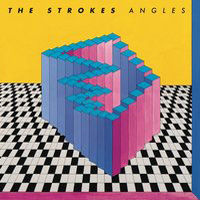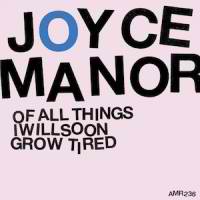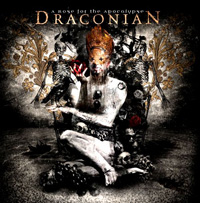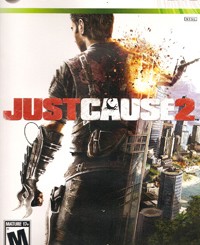 The Strokes
The Strokes
Angles (RCA)
by Scott Deckman
There’s a lot to hate about The Strokes. I just wish it wasn’t the music they feel compelled to make these days.
In 2001, the Strokes hit on a formula – and a wonderful production job by Gordon Raphael (www.soundonsound.com/sos/apr02/articles/gordonraphael.asp) – that most bands can only dream of. And they were in a uniquely postmodern position of being loved and dismissed at the same time, an indie rock band who were more famous than their music. Their debut, Is This It, elicited many reactions – mostly positive – and that’s good because, in truth, it’s a great album.
But some people seemed to hate them for being the most hyped band since a certain three-piece from Seattle 10 years prior. (Of course, that certain three-piece had already demonstrated the goods by the time of their press juggernaut, not to mention kick-started a sonic revolution, whereas the Strokes never fulfilled on their savior role.) In fact, I recently got heat from one friend in particular for listing Is This It as one of my personal favorites, ahead of albums he considered more worthy. And I’m sure he isn’t the only one who feels this way.
On Is This It they mixed a unique blend of the Velvet Underground and Bowery punk and made it their own. No easy feat. Much of this was due to Julian Casablancas’ fin de siècle delivery; he sounded like he’d just smoked a pack of unfiltered Camels, banged some slumming hottie (who would blow you off at the local dive bar if given half a chance), and otherwise couldn’t be bothered by mere non-hipster mortals. Mainly because his beautifully-wasted life was gonna be the same tomorrow as it was yesterday, and try as you might, you were never gonna be as cool as him. The rest of the band probably felt the same, you surmised. So despite the grooves and melodies, here was another reason to hate these little assholes. Sons of privilege (Casablancas’ father is Elite Model Management founder John Casablancas; Albert Hammond Jr. is scion of singer/songwriter Albert Hammond, co-writer and performer of, among others, “It Never Rains in Southern California.”), it was easy to be dismissive of these brats.
But you know what? Who gives a shit. A great record is a great record, whether it’s made by an aristocrat or a street punk. If the Strokes only would’ve stuck to what they did best – and their arty garage rock revival was as good as anything else that came out during the ’00s – they could’ve gone the route of the White Stripes, erstwhile tour mates who’ve continued to produce good, even compelling records. The Strokes and Jack White make completely different sounds, sure, but at their peak, the Strokes were as good as any band out there.
Their sophomore record, Room on Fire (also produced by Raphael), was good too, their third full-length release, First Impressions of Earth, wasn’t, which leads us to Angles, where we find the band again trying to branch out, as well as handling most of the production duties themselves. Bad move. Sadly, it still seems like the Strokes are trying really hard to escape Is This It‘s shadow. But they’ve proven with their last two efforts that this newfound aural diversity was not a wise move either artistically, or presumably, commercially. The Ramones and AC/DC continued to make similar albums for years, and fans – and critics, to varying degrees – loved them for it. It’s a tough spot to be in: Your first record’s an underground sensation that really was all that, so what do you do for an encore? The funny thing is, the Strokes avoided the sophomore slump with more of the same on Room on Fire. While it didn’t quite have the killer songs of their debut, it swam in the same fuzz-pop milieu. Instead, the band waited further into their catalogue to release the stinkers.
If anything, Angles is even weaker than First Impressions of Earth, which at least had some tunes that stuck in your head. In fact, it’s hard to think of a band that has fallen so far from their lofty perch in only four records as the Strokes.
I’m not against growth in a particular artist, or hell, in people. But with Angles, the Strokes prove that sometimes growth is overrated. This is a strange record where you can tell there’re songs just under the surface that never get to flourish. “Taken for a Fool” features a good chorus and typical angular guitar, but you have to wade through some annoying noise and lyrics to get there. Why anyone thought “Under Cover of Darkness” is a single will confound those who enjoyed the pure bliss of “The Modern Age” or “Hard to Explain.” It’s not even that it’s terrible, per se, it’s just that it’s not anything special. Though Casablancas tips us off with the line, “Everybody singin’ the same song for 10 years.”
If only. That great debut is certainly on his mind, it would seem.
“Two Kinds of Happiness” sounds like it should be on a John Hughes movie soundtrack. In fact, it almost has a Kenny Loggins “Footloose” feel. Only Nick Valensi’s furious guitar work throughout (and I’m assuming it’s him and not Hammond) nixes a valid comparison. There’s none of that easiness of the first or second record. “Call Me Back” is somewhat interesting and intimate. Parts of the album seem like it was made more than two decades prior, and, on some takes, it sounds even older than that. On the whole, Angles is kind of sad: The Strokes are better than this.
I say lock them in a room with Velvet Underground and Ramones records for three days before they make album number five. It can only help them get their groove back.
(www.thestrokes.com)



